Colin Norris: Innocent serial killer?
- Published
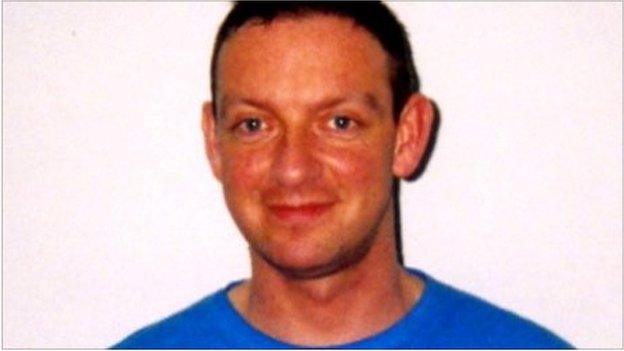
Colin Norris was convicted of murdering four elderly patients
The case of Scottish nurse Colin Norris is an immensely troubling one: a cold-blooded medical killer without an obvious motive; convicted on largely circumstantial evidence.
Norris, from Glasgow, was found guilty in 2008 of murdering four elderly patients and attempting to murder a fifth at two hospitals in Leeds. He was jailed for a minimum of 30 years.
My relationship with his case started back in 2011. My latest Panorama/BBC Scotland Investigates is the second programme I've made on it. And there is now even more reason to question the convictions.
I've investigated miscarriage of justice cases before, but never when the person claiming innocence is a serial killer. I was immediately sceptical. But over the years, alongside the brilliant producer Louise Shorter, I have become ever more concerned about these convictions.
This was a case based on science. There was no other evidence. No empty syringe, no fingerprints on a vial, no witnesses.
Suspicion fell on Norris because on the night that Ethel Hall collapsed, he had told colleagues that he thought she didn't look right and might not last the night.
Mark Daly on the fresh research - and reaction from one of the jurors
Former colleagues of his would tell me that is the kind of thing heard in nurses stations up and down the country every day of the week. But it's what focused West Yorkshire's police's attention on Norris right from the off.
Ethel Hall's blood showed high levels on insulin, suggestive of poisoning. From there, the police worked backwards, doing an historic trawl through patient records, retrospectively looking for cases of unexplained hypoglycaemia while Norris had been on shift.
The lead detective in the investigation had recently finished a review of the case of medical serial killer Dr Harold Shipman - and West Yorkshire police suspected they had another serial killer on their hands.
They found another four cases - but the only evidence was that they'd had unexplained low blood sugar and Norris was on shift at the time. It was enough - he was convicted.
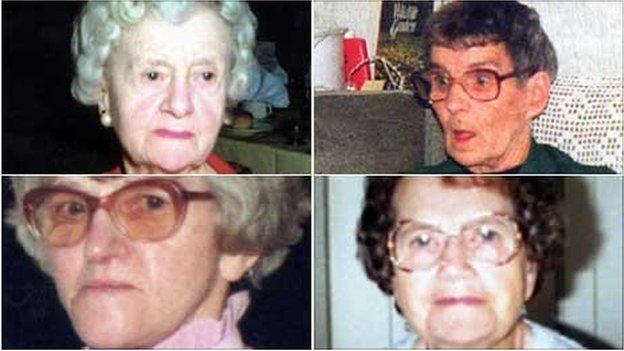
Clockwise, from top left: Bridget Bourke, Irene Crooks, Ethel Hall and Doris Ludlam
His mother, June Morrison, was in the public gallery at Newcastle Crown Court to hear the verdict six years ago.
She told me: "I felt as if my world was closing in, it was horrible, I couldn't believe what I'd heard. It was horrendous. I thought my world had ended."
Had she ever doubted her son's innocence?
"Never. Never. Because I know my son. I've just got to keep going and keep going until we eventually let people know that there has been a miscarriage of justice here and he is not guilty. He is innocent."
The case that Colin Norris has been the victim of a miscarriage of justice is building.
During this latest investigation, we spoke to a variety of experts. Two of them, both eminent in their field, believe there could be a natural explanation for Ethel Hall's blood test result - a rare condition called insulin auto immune syndrome.
June Morrison says she felt as if her "world was closing in" when her son Colin was found guilty of several murders
At trial, this rare condition was positively excluded by no fewer than seven experts, who believed it was too rare, and did not fit the clinical picture.
But Prof Terry Wilkin, from the University of Exeter, says: "If you're asking me the question, does insulin auto immune syndrome fit with the facts of the case as reported, then yes it does."
Prof Wilkin, alongside a mathematician colleague, also seriously questions whether an injection of insulin would even be possible to produce the levels of insulin found in Ethel Hall's blood.
Our investigation hears from several experts, all questioning the veracity of the scientific work done to convict Colin Norris.
What began as a mother's plea to investigate her son's case in 2011, has led me to question not only whether a completely innocent man could be serving 30 years in prison, but also, whether anyone was murdered in this case at all.
I wanted to know whether a jury today would have come to the same conclusion as in 2008.
Only 12 people could answer that question - and one of them agreed to talk to us and to look at our evidence.
Colin, juror number eight, told me: "[The new evidence] just throws a new light to it. I mean it could, if that evidence was … available at the time, I mean, I think they would have threw the case out to be honest.
"Very doubtful that we come to the right conclusion. Very doubtful."
Norris's case is currently with the Criminal Cases Review Commission, which has been looking at the case since our first programme in 2011. We will be making our new evidence available to the commission.
Watch Panorama: The Innocent Serial Killer? on BBC One on Monday at 20:30 GMT.
For viewers in Scotland, BBC Scotland Investigates: The innocent Serial Killer, BBC1 Scotland 20:30 GMT.
- Published15 December 2014
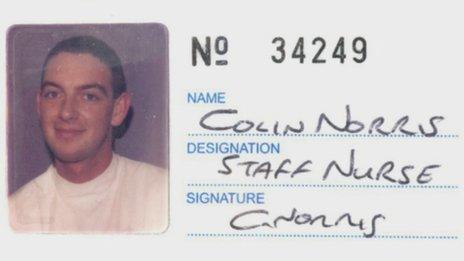
- Published22 May 2013
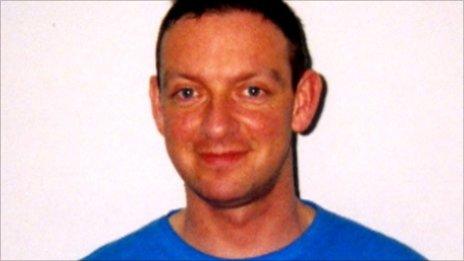
- Published4 October 2011

- Published4 October 2011
- Published4 October 2011
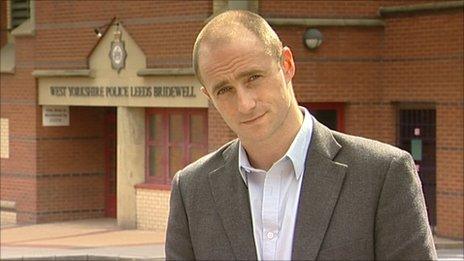
- Published4 October 2011